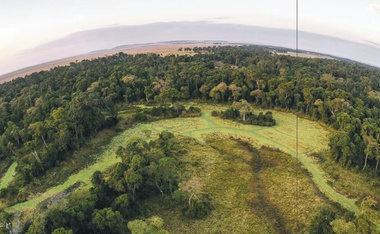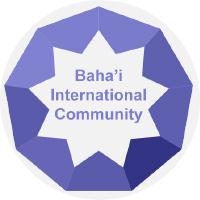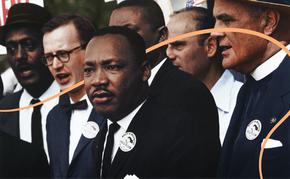The views expressed in our content reflect individual perspectives and do not represent the authoritative views of the Baha'i Faith.
All of the earth’s inhabitants deserve the opportunity to enjoy the fruits of a global society advancing in harmony with the natural world.
To create such a society, people everywhere must be empowered to participate in the constructive processes that will give rise to it. Building capacity in individuals, communities, and institutions to contribute effectively to transformational change is therefore an indispensable element of effective environmental action.
For the individual, this implies developing a range of interrelated capacities — scientific, technical, social, moral, and spiritual. Individuals must be endowed with an understanding of concepts, knowledge of facts, and mastery of methods, as well as the skills, attitudes, and qualities required to establish more healthy and sustainable patterns of individual and collective life.
In terms of local communities, capacity building involves the enrichment and conscious shaping of culture. On the community rests the challenge of creating a milieu in which individual wills blend together, in which powers are multiplied and manifest themselves in collective effort, and in which higher expressions of the human spirit are demonstrated in new ways of arranging the affairs of society. Attention must also be paid to strengthening organizational structures. Institutions with capacity are needed at every level that can act as channels through which the talents and energies of individuals and groups can be expressed in service to the common good.
We should continually be establishing new bases for human happiness and creating and promoting new instrumentalities toward this end. — Baha’i holy writings.
RELATED: Taking Action Against Climate Change and Injustice
Trusteeship of the Natural World
Human beings exercise a level of influence over the natural world unique among all forms of life on the planet. At times, this has been construed as justification for an orientation toward mastery and control of nature, buttressed by notions of ownership and dominance.
As more and more people have come to recognize humanity’s interconnection with and dependence on the environment, however, they have accepted that our unique impact carries with it the inescapable duty to nurture and protect the natural world. Each of us enters the world as a trust of the whole. Each in turn bears a measure of responsibility for the welfare of all and for the planet on which we depend.
This world-encompassing sense of trusteeship does not seek to eliminate humanity’s impact on the natural world. Material resources will always be required to sustain and advance civilization. The goal, rather, is to direct that impact consciously, creatively, and compassionately.
As we learn how best to utilize the Earth’s raw materials for the good of all, we must be conscious of our attitudes toward the source of our subsistence. Our activities must reflect the fact that the wealth and wonders of the Earth are the common heritage of all people, who deserve just and equitable access to its resources. Our choices must evince an intergenerational perspective in which the well-being of future inhabitants is taken into account at all levels of decision-making. And in this turbulent period of human history, our activities must increasingly be tempered by the wisdom and judgment that come with growing maturity.
Is there any deed in the world that would be nobler than service to the common good? … No, by the Lord God! — Baha’i holy writings.
In human affairs, diversity of thought, background, and approach are similarly critical. It is through the interaction of diverse perspectives and experiences that higher degrees of truth can be found and insight gained. Otherwise, an overabundance of similar views and opinions, like excessive dependence on a single natural resource, leaves a system exposed to dangers and vulnerable to breakdown.
The contributions of ever more populations, well coordinated and integrated, will be required to rebalance humanity’s relationship with the natural world. Presumptions of any one group’s superiority over another, asserted along lines of nationality, race, wealth, or any other characteristic, cannot but erode the bonds needed to generate consensus and sustain coordinated action. Feelings of otherness invariably undermine motivation to work for the common good, either social or ecological. Humanity has often struggled to appreciate diversity while working to build unity, to respect and protect the particular while drawing on the strength of the shared. Stewardship of the natural world offers a powerful means to reconcile these interconnected ideals.
Consensus in Action
Moving humanity to a more sustainable and harmonious relationship with the natural world will require a strong and actionable consensus, along with collective will, around key principles that are to shape the affairs of the international community.
A level of agreement has been established around foundational principles such as stewardship, interdependence, and justice. But such ideals have yet to take hold as the accepted foundation for collective global action. The insufficiency of national plans to reduce carbon emissions under the 2015 Paris Agreement, to date, provides one well-noted example. This gap between rhetoric and action is indicative of a deeper challenge, namely that principles related to sustainability are not embedded deeply enough in the collective consciousness to shape the choices and behaviors of nations.
Consensus that has been well settled is demonstrated not merely by the name and claim of text on a page, but through coordinated, collaborative action; its touchstone is deeds, not words.
Strong commitment to key principles and values at the international level assists national and local leaders to overcome the barriers that inevitably arise in implementing necessary changes. It clarifies the rationale for nations to provide one another with the resources necessary to bring agreements to life. And it helps societies move past objections based on limited or self-serving interests. No longer can the peoples of the world be asked to tolerate the disjunction of agreements signed but left unimplemented. Action must be made coherent with principles that are collectively embraced and championed by all. The international order must be placed on a footing that effectively facilitates planetary responses to planetary challenges.
Consensus around global objectives, such as the [U.N.’s] Sustainable Development Goals (SDGs), could be more robustly translated into action by framing consultation around common recognition that every country still has much to learn about integrating the imperatives — equally important — of both sustainability and development.
Some countries have secured high levels of material development for many of their citizens, but exert disproportionate ecological impact in terms of resources consumed and waste generated. Others have a much more sustainable ecological footprint, but remain in need of significant material development to meet the basic needs of their citizens. The goal each nation must be working toward is well-being for all populations through means that ensure sustainable and harmonious relationships with the natural environment. Centering this universal goal would provide an important point of unity around which consensus can be translated into collective, purposeful action. Building actionable consensus around moral and ethical standards, alongside climate and environmental standards, can help ensure principle takes precedence over profit. This is not uncharted territory for the international community. Valuable lessons can be drawn, for example, from the certification process the United Nations established to curb the circulation of conflict related diamonds. Notwithstanding any shortcomings of that process, it represents an instance of consensus on ethical and social factors being translated into concrete measures of analysis and adjustment at various steps in a commodity’s value chain.
RELATED: How We Can Build a Green Global Economy
Proposals for Exploration
Consensus around global objectives, such as the Sustainable Development Goals (SDGs), could be more robustly translated into action by framing consultation around common recognition that every country still has much to learn about integrating the imperatives — equally important — of both sustainability and development.
















Comments
Sign in or create an account
Continue with Googleor